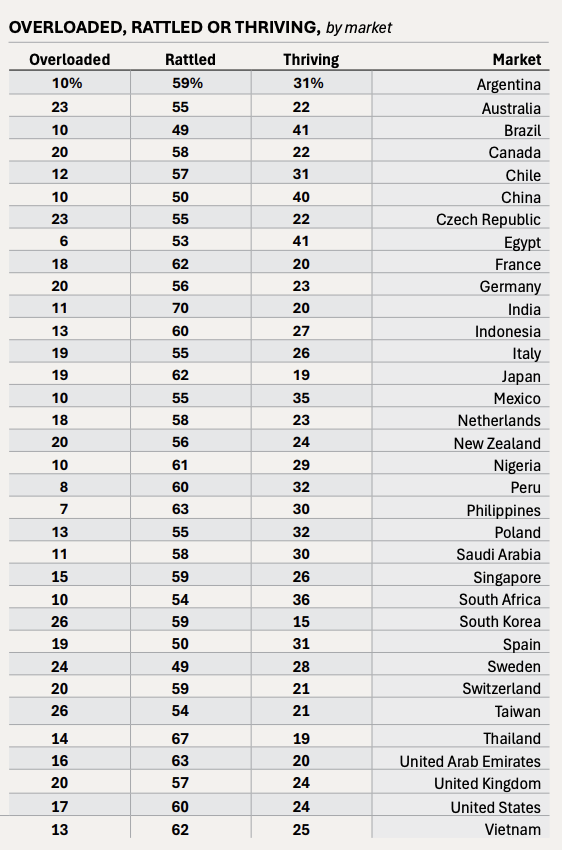
Overburdened employees less productive, more likely to 'revenge quit'

Nearly a quarter of Australians said they are overloaded at work, according to a new report, which found that stress levels among the local workforce are the highest compared to those in neighbouring countries.
Findings from ADP's People at Work revealed that 23% of Australian workers are "overloaded," or experience job pressure much more negatively than others.
This is higher than the levels recorded in other Asia-Pacific countries, such as Japan (19%), Singapore (15%), India (11%), and China (10%).
Another 55% of Australian employees said they are rattled, meaning they haven't mastered how to minimise negative stress and fill their days with more positive stress.

Globally, the ADP report found that chronic worker stress reached a new low in 2024, with those reporting daily on-the-job stress dropping to 7.5% last year.
"The decline continues a trend that began after the pandemic, with fewer people each year reporting high-frequency, negative on-the-job stress," the report said.
But it noted that it didn't come with a boost of workers who are thriving, who are likely to experience work pressure as positive stress.
"Bad stress is down, but too few people are finding joy on the job," the report read.
According to the report, stress among Australian employees is made worse by growing scrutiny over them.
Around a third of the respondents said they feel judged for taking advantage of flexible working arrangements (31%), and that their managers are monitoring everything they do (33%).
Workers who feel judged and monitored are less likely to be thriving and tend to be less productive at work, according to the ADP report.
"Overburdened employees are less productive, and without intervention, businesses risk facing a wave of 'revenge quitting'—where frustration prompts abrupt resignations," said Kylie Baullo, General Manager for Australia, New Zealand, and Japan, in a statement.
Revenge quitting refers to employees' practice of abruptly leaving their job, often without notice, in retaliation for dissatisfaction in their current work.
Baullo advised organisations to address the issue of work pressure before it causes a talent exodus.
"Employers must act now — shifting from temporary fixes to proactive strategies: rebalancing workloads, normalising conversations about mental health, and measuring success by outcomes rather than hours logged," she said. "Equipping employees with the right tools, such as automation, can help reduce administrative tasks and lighten their workload."